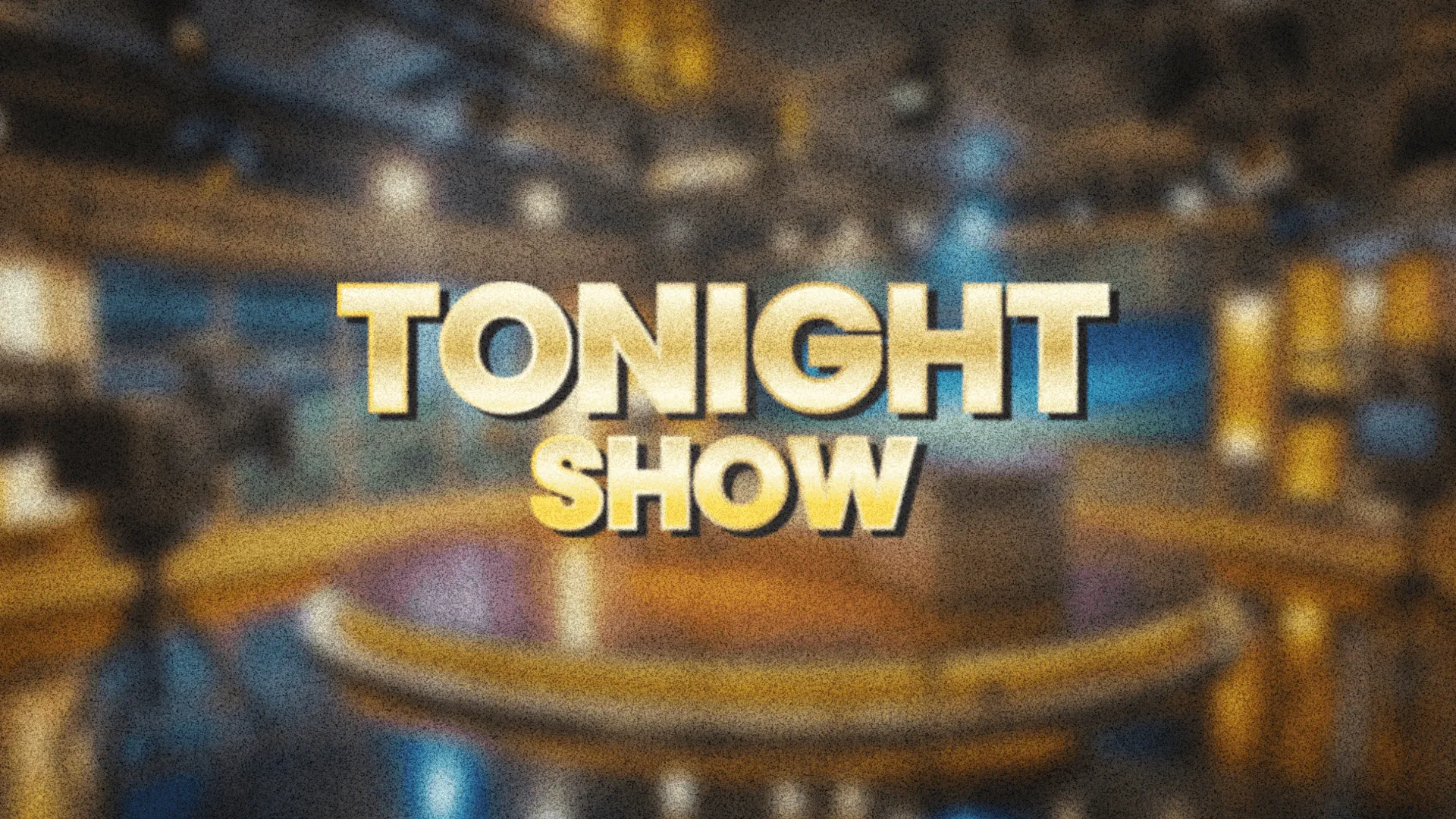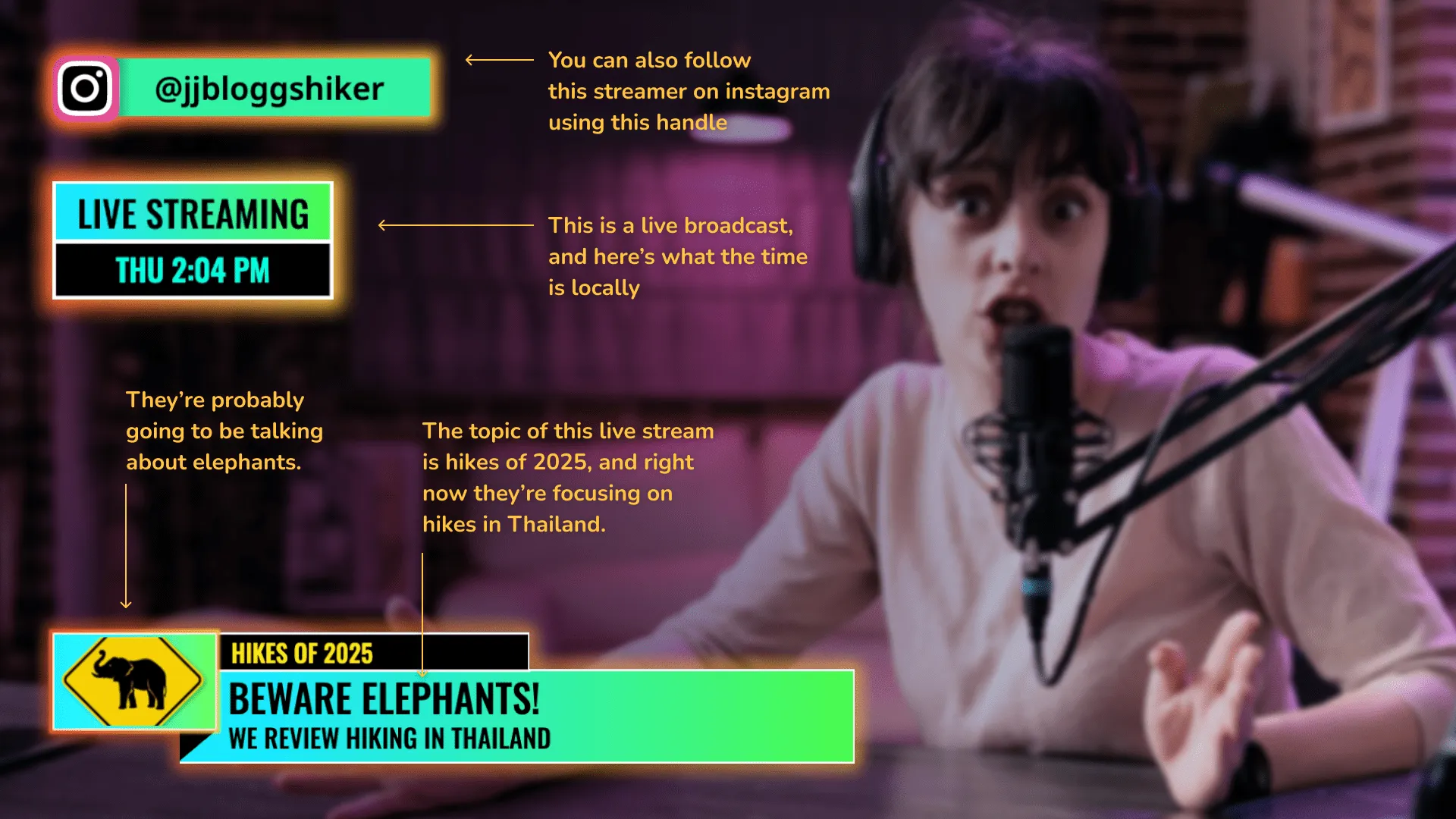Sign up for uno
Language
If you’ve watched any kind of video content – be it a live sports broadcast on television, or a podcast on YouTube – you’ll have noticed graphics appearing onscreen. These are called overlays, and are used in a wide variety of media. What are stream overlays, and how do they help create a better viewing experience? Here’s a quick overview for the uninitiated.
In general, overlays are used to add branding, text, important data, and other visual elements on top of primary content (for example, gameplay, newsreels, or webcam footage). They convey essential information without detracting from the overall aesthetic appeal, often enhancing the production quality and building a visual narrative.
The onscreen graphics we use today have roots from those created for traditional broadcasting media by designers in the 50’s to 70’s. Even before computer graphics were developed, TV stations would designate a separate camera to capture cards on an easel or flip stand. Stylized typography on openings, infographics, and animated maps all helped cement a channel’s brand identities and made a broadcaster stand out from others.

Eventually, character generators rolled onto the scene, allowing text to be added live and moving beyond pre-assembled graphics. By the 90’s, use of computer graphics for television broadcast became widespread, allowing the development of bugs, crawls, and information panels.
Audiences grew accustomed to digesting multiple layers of information at once. When flicking through their local stations, they expected to see the time, where their newscasters were reporting from, a crawl of major headlines at the bottom, and infographics or maps onscreen. You would be hard pressed to find a program that displayed a video broadcast without overlays throughout its runtime.
With the introduction of live streaming, onscreen graphics fell into the hands of anyone and everyone. We began to see more complicated overlays, exciting animations, and fully customizable streaming graphics. Graphics were developed that integrated live data in creative new formats. The range of look and functionality of overlays expanded to fit the ever-evolving variety of content genres, from gaming to live podcasts.
Today, overlays do a lot more than just attract an audience’s attention. Overlays are great at helping viewers multitask.
By glancing at a screen like the one below, you can process a number of different things at once while simultaneously absorbing what’s being shown to you in the live stream.

In this example, you’re picking up details like whether content is streamed live or is prerecorded, and taking cues on what the live stream is about. You’re also gaining insight into how to explore more content from the creator and continue interacting with them once the stream ends.
Other overlays for live streaming include webcam overlays that help a person’s expressions and reactions stand out from the primary subject. You’ll also often see donation reminders, sponsor loops, and score counters for gaming content.
Regardless of the type of information contained in an overlay, they create a cohesive visual language that streamers use to communicate with viewers.
Overlays may seem like a highly technical, inaccessible tool, but with overlays.uno, adding your own live streaming graphics is easier than you think.

All uno overlays for live streaming are free to use – just sign up with your email address! You don’t need to download any ZIP files or install a fancy browser extension. Every uno overlay we release can be saved, edited, and controlled 100% online.
If you’re still feeling overwhelmed, we’ve put together some resources to help you get started:
If you’re ready to discover what stream overlays can be for you, sign up to uno today and start using our overlays for live streaming.